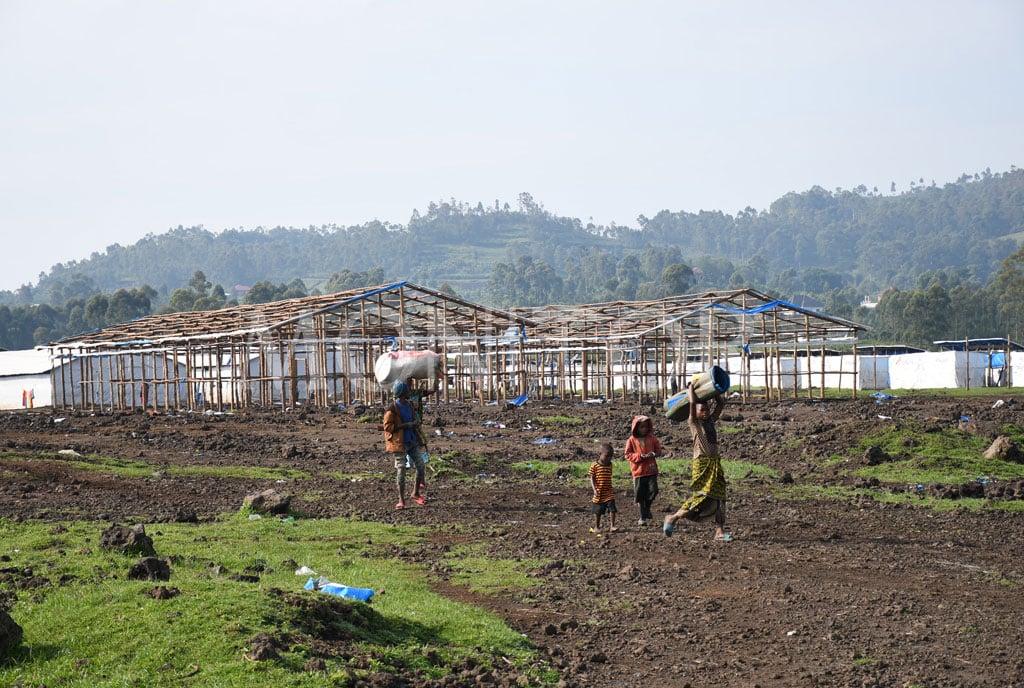Encourage refugees to participate in World Aids Day celebrations

Some Congolese refugees are seen exiting near demolished temporary structures at the Nyakabande refugee transit camps in Kisoro District on October 18, 2022. PHOTO BY ROBERT MUHEREZA.
What you need to know:
- Inclusive sensitisation and continuous education, reproductive health rights sessions, information sessions and therapy through indoor and outdoor services are critical.
Whereas Uganda is still grappling with the effects of Covid-19 and the re-emergence of Ebola in 2022, the struggle to end the HIV epidemic by 2030 as envisioned by the United Nation member states must not be compromised.
Annual celebration of World Aids Day in Uganda on December 1 should be treated as crucial protection issue in this era where the struggle to combat the pandemic have been seriously affected by emergence of refugee crisis and host population struggling to deal with their violent past, including surviving wartime sexual violence (example, former Lord’s Resistance Army abductees).
Couple with the compounding effect of Covid-19 that affected prioritisation of health financing and focus, the glorious history of the country leading the fights against HIV in Africa needs to be uplifted again now that the landscape have been broadened up by the hospitality of hosting a large population of around 1.2 million refugees, the third-largest refugee population in the world and the largest in Africa, with horrible accounts and ordeals of conflict-related sexual violence experiences.
The nexus between forced migration and HIV/Aids is real and therefore, efforts to prevent the spread of the infection and treat the infected persons and affected families and population with dignity and compassion should never be compromised in the drive to combat the pandemic, stand in solidarity to support people living with HIV/Aids and affected families and remember those who lost their lives to the illness, as well as the resultant orphans, widows and widowers.
Wars, protracted violence and forced migration creates numerous vulnerabilities and conditions that predisposes victims and survivors to contracting the deadly virus as well as spreading. Key stakeholders such as Office of the Prime Minister (OPM), United Nation High Commissioner for Refugees (UNHCR) and other operating and implementing partners should unveil and provide special consideration by providing different avenues for refugees and hosts to fully participate in prevention and response frontlines during and after the celebration.
When the Ministry of Health (MoH) launched Uganda Refugee Population-Based HIV Impact Assessment Survey in 2021 (RUPHIA 2021) that targeted reaching out to over 12,000 refugee households in Uganda, significant glamour of hope was raised for widespread rollout and complementary interventions to handle prevention and response in refugee population.
This denote a good political will that stakeholders must capitalise on in the struggle. As a change agent involved in supporting treatment processes and documenting conflict experiences of refugees struggling with untreated war harms, the horror of HIV/Aids is gaining momentum thereby compounding the suffering and vulnerability of refugees. Hence, this year’s celebration should target mass refugee-host involvement as a measure of addressing inequalities in focus and services delivery in the fights against HIV.
Inclusive sensitisation and continuous education, reproductive health rights sessions, information sessions and therapy through indoor and outdoor services are critical.
Screening refugees on conflict experiences must include HIV talks and referral for voluntary testing and treatment for survivors of sexual violence and those exposed to blood from others during rescue and mass wounding. Inclusive approaches; open door, closed door, “Moon light” and distant testing and treatment should be encouraged for motivated people who have not yet dealt with fear and or reached positive living status.
Refugees and hosts should be supported with spaces to engage in prevention talks as well as devising mechanisms of confronting/addressing stigma so as to promote self-help groups, social support, counselling and follow-ups that motivates support rather than stigma.
Benard Okot Kasozi, Psychosocial support practitioner, Refugee Law Project.




